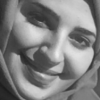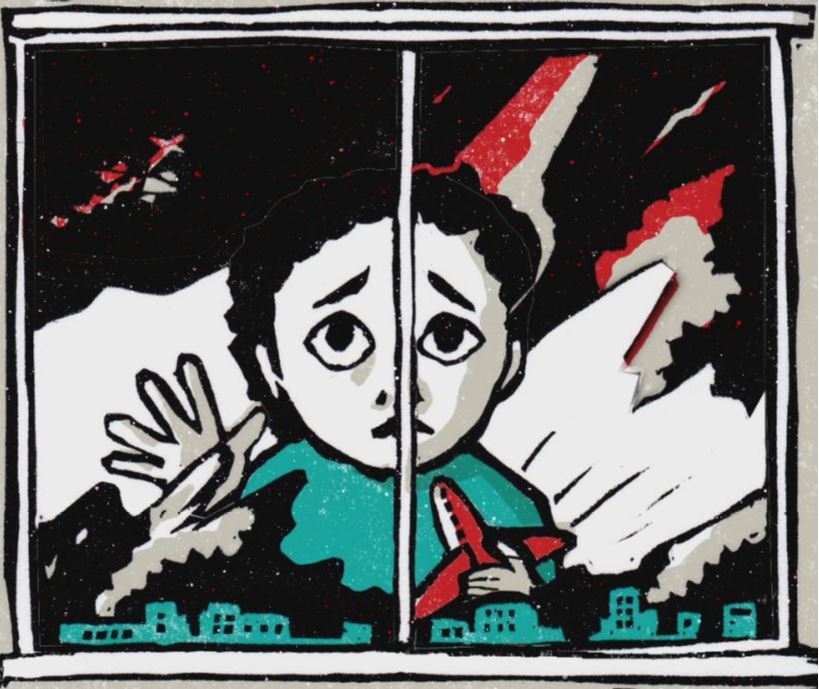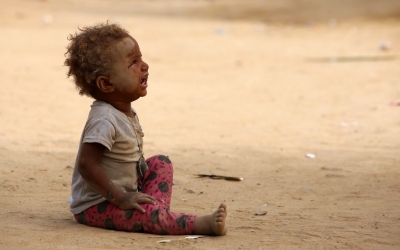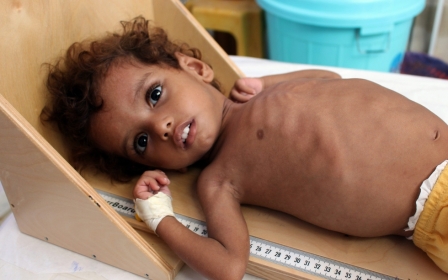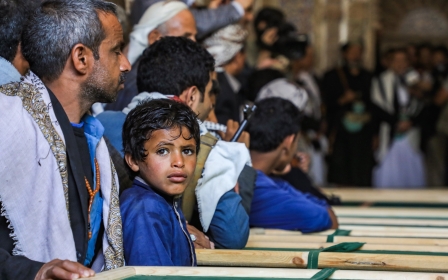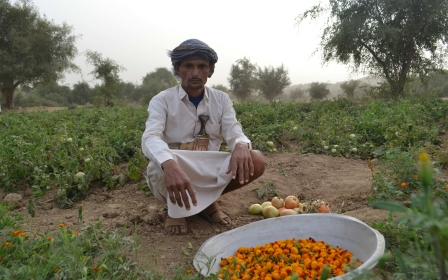This is how it feels to raise a child in war-torn Yemen
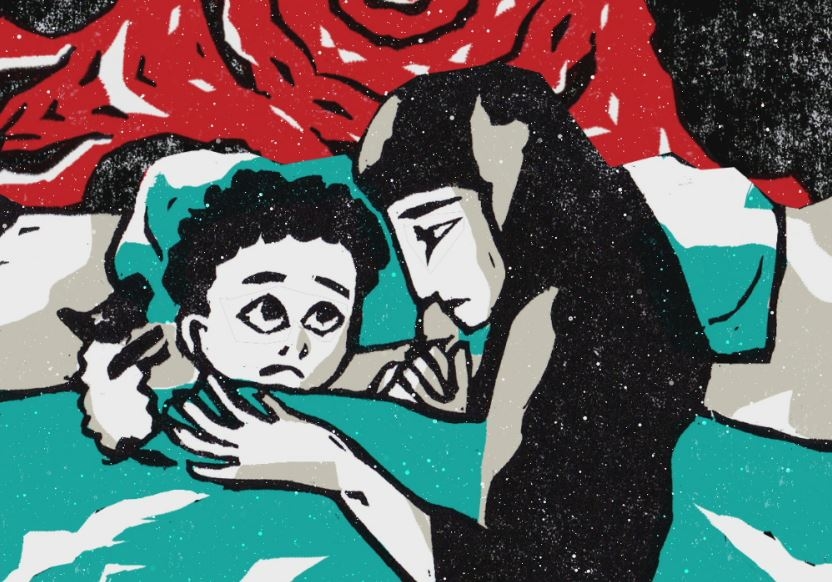
When I think about my son, I get tears in my eyes. He is three, and all he has ever known is war.
The night he was born, my contractions started at midnight. We had to go to three different hospitals before we found one with electricity.
There were air strikes all around; it was terrifying. In the end, I needed a C-section and asked for a general anaesthetic because I didn’t want to hear the sound of bombs when my son was born.
Staying indoors
War has been part of his life, right from the start. I feel like it has stolen his childhood. He is three now, and all he wants to do is go out and explore, but we must keep him indoors where it is safer.
New MEE newsletter: Jerusalem Dispatch
Sign up to get the latest insights and analysis on Israel-Palestine, alongside Turkey Unpacked and other MEE newsletters
He can’t even play with water outdoors, because he could contract cholera. It is too dangerous to play football in the street.
I try to stay calm for my boy. Inside, I’m panicking about how on earth we will get out of our ninth floor apartment if it gets hit
This is not the life I wanted for him. The war has changed everything for my family and I.
My husband used to have a good job, but he lost it when the economy crashed. He has a degree and speaks good English, but he goes out every day, searching for a job that pays. It has been more than two years since some public servants, teachers and doctors have been paid.
People like me, who are lucky enough to still have a job, support their whole extended family. I support my parents, my brother’s family, my grandmother and my cousin’s family; it is barely enough, but better than nothing.
Danger from above
Everything in the shops is so expensive. I used to buy nappies without thinking about it; now, they are a luxury item. Many families with newborns use plastic bags or cloths instead, because they cannot afford nappies.
Before the war, we used to have big family gatherings. I loved them. Everyone would eat together, the kids would play – it was a happy time. Now, all we talk about is the war.
Sometimes, when we hear air strikes in the distance, we put on headphones and play loud music to drown out the warplanes. Other times, we just listen.
My little boy is so innocent. He loves airplanes and carries a small, orange, toy plane with him wherever he goes. Every time jets hover above, he gets excited; he jumps up and down and says, “Wow mummy, let’s go see the airplane!”
I quickly pull him away from the windows. He doesn’t know what I know. We haven’t had any commercial flights in Yemen for years, so planes in the sky can only mean one thing: bombs. When I hear them approach, I think to myself that this might be the end.
Tired of crying
I try to stay calm for my boy. Inside, I’m panicking, worrying about how on earth we will get out of our ninth floor apartment if it gets hit. Somehow, children always feel your stress. My son tells me to smile: “Mummy, be happy – don’t be sad!”
That is what I try to do. Even though my country is at war, bombs are falling, and people are going hungry, I try to smile and be happy for my son.
But I am exhausted. I am tired of crying. I am tired of war. All I want is for my son to live a normal life, like other little boys all over the world.
Think of us tonight when you go to sleep – without the sound of air strikes, or the fear that a bomb could wipe you out without a trace.
The views expressed in this article belong to the author and do not necessarily reflect the editorial policy of Middle East Eye.
This article is available in French on Middle East Eye French edition.
Middle East Eye delivers independent and unrivalled coverage and analysis of the Middle East, North Africa and beyond. To learn more about republishing this content and the associated fees, please fill out this form. More about MEE can be found here.


